"I've had my descents into hell" - Heavy Metal artist Caza talks Arkadi and the Lost Titan, the visionary sci-fi masterpiece that took him 20 years to complete
Interview | Caza's masterpiece gets its first ever English translation
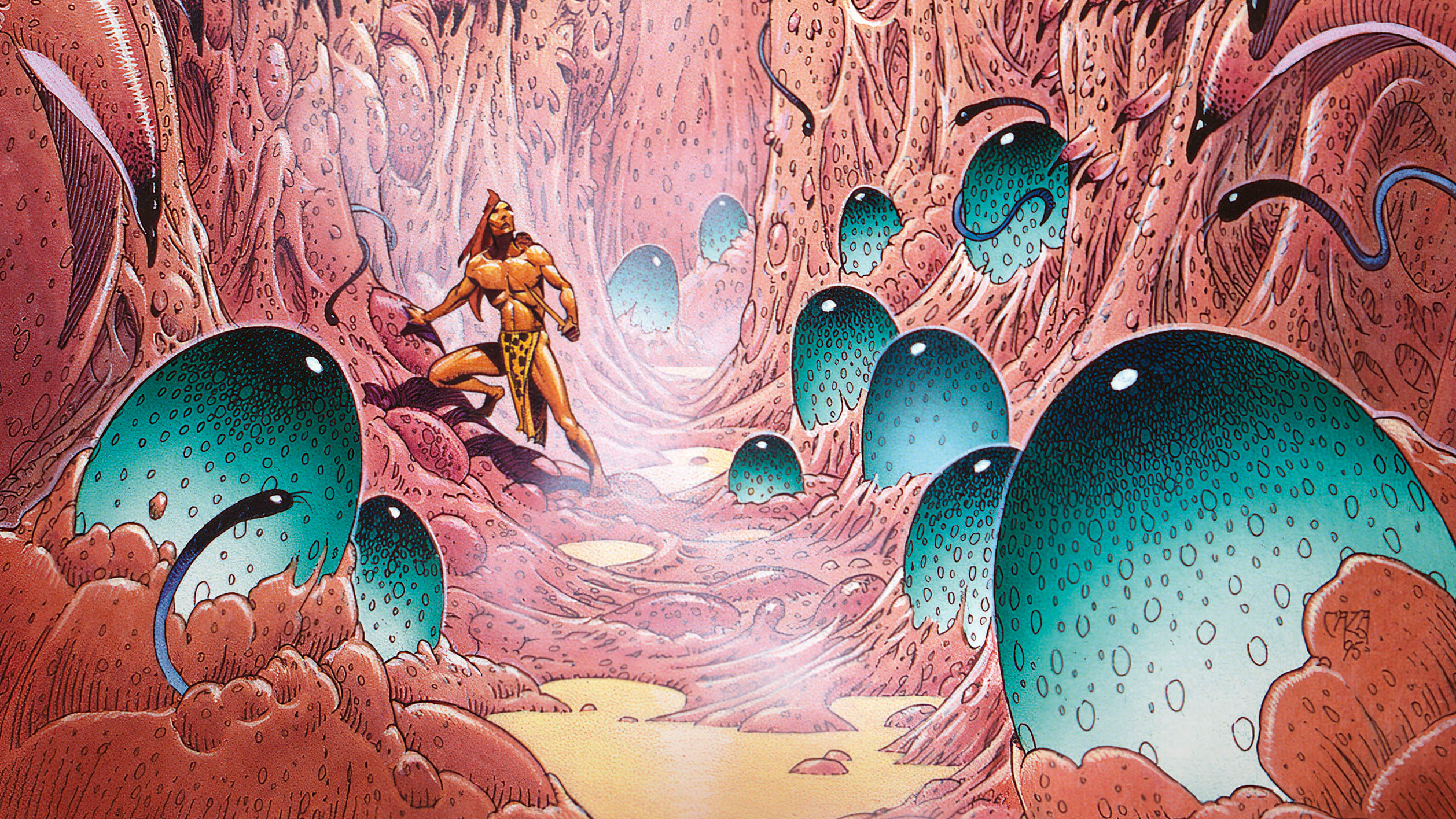
Legendary French-American comics and graphic novel publisher Humanoids turns 50 this year. Part of its celebrations includes the first ever English translation of Arkadi and the Lost Titan - a sci-fi epic by Philippe "Caza" Cazamayou, best known for his work in the pages of Heavy Metal and Métal Hurlant, which has drawn apt comparisons to the comics of Mœbius and Alejandro Jodorowsky.
Arkadi and the Lost Titan is big – it spans more than 500 pages and took its creator some 20 years to complete. Set on a desolate future Earth that has stopped turning, the remaining humans battle for survival. Young hero Arkadi takes part in a deadly "Trial of Purification," and then must embark on a dangerous journey in search of a missing Titan cyborg that will be necessary for the planet's survival.
The book is being released via Kickstarter and will be available in both a standard and a deluxe slipcase editions, with various bonuses available for backers. We spoke with Caza to find out more about Arkadi, why it was so long in the making, and how it feels to finally bring this masterpiece to a much wider audience.
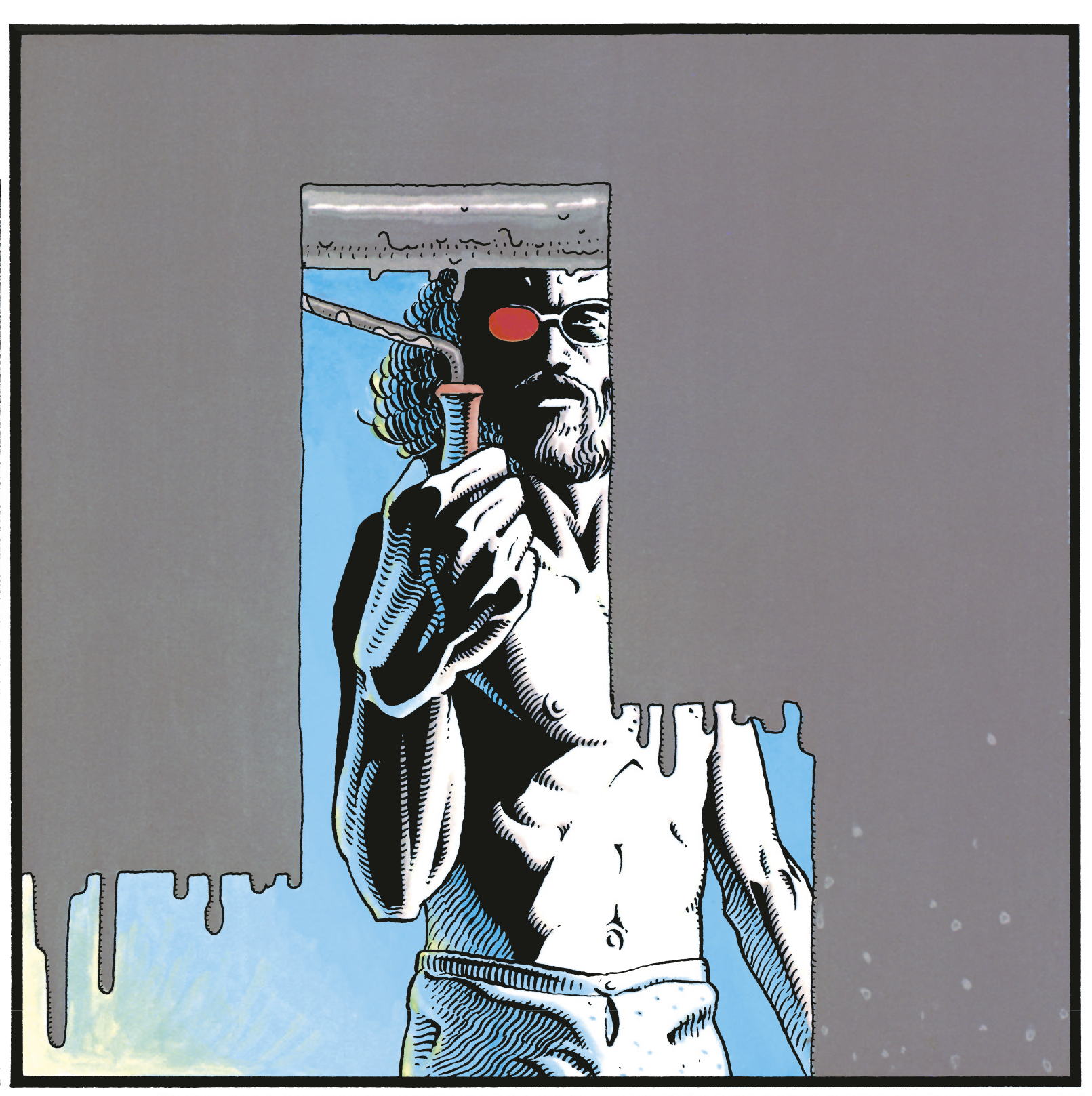
Newsarama: Let's start with the story of Arkadi and the Lost Titan. What's it about?
Caza: It's a long story! The world is our planet in the very distant future, whose rotation has become synchronous, i.e. it always turns the same way towards the sun, as the Moon does around the Earth. The result is a world with one hemisphere hot and the other icy. In between, on the edge, "twilight," the wind blows constantly. Life clings on in the tepid zones, a primitive life frozen in superstitious rituals. A single technological city remains, buried beneath the ice of the night pole. Here, the "chosen ones" live only with the help of robots and computers, the "machine-gods," the Titans.
One of these Titans is Or-Phe, the cyborg poet in charge of feeding the dream-screens of the chosen ones. But he disappears into the Great Outdoors, and without him, the city withers away.
And who is Arkadi?
Get the best comic news, insights, opinions, analysis and more!
Caza: He's the young inhabitant of a barbarian village in the warm zone. Through a series of complex circumstances, he becomes the one who searches for Or-Phe and, perhaps, saves the city. But...
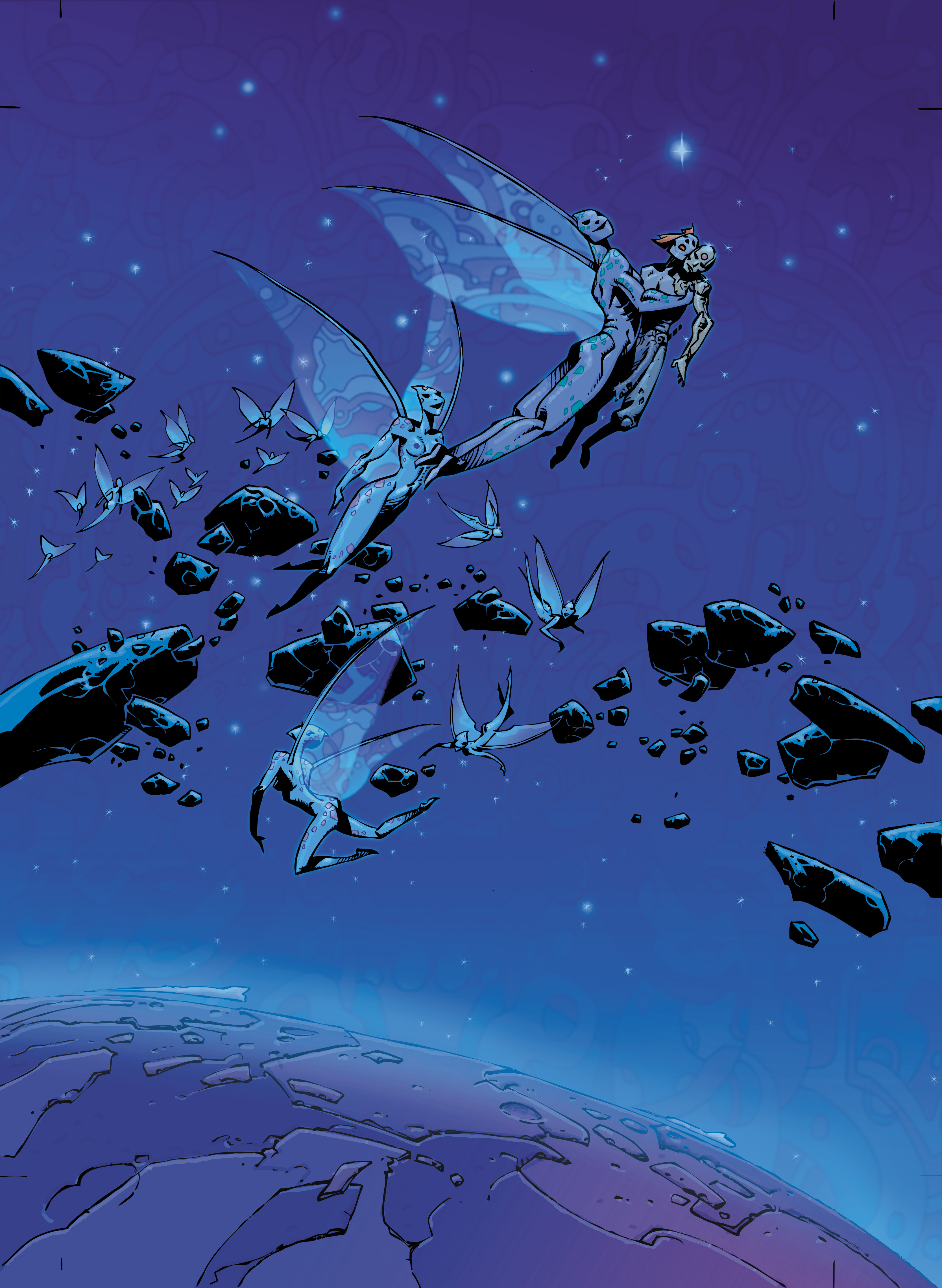
This is a true epic. What were some of the challenges you faced while creating it?
Caza: I think the challenge was that of a novelist. The length and the ambition. Up until then, I'd been producing short comics stories and illustrations. Here, I was embarking on a big saga, an odyssey comparable to that of Ulysses, a journey in a labyrinth on a planetary scale. Along the way, my characters (and me along with them) had to build or rebuild themselves, mutate...and face "the Dragon." An initiatory quest, involving discovery of the world and its dangers, inner evolution, metamorphoses, numerous characters, varied settings and complex scenarios, including rational elements, science fiction in the truest sense, but also fantasy, interpretations of great classical myths: Orpheus, Pandora, Prometheus, alchemy... and others. With the hopes of making it all come together like a great novel.
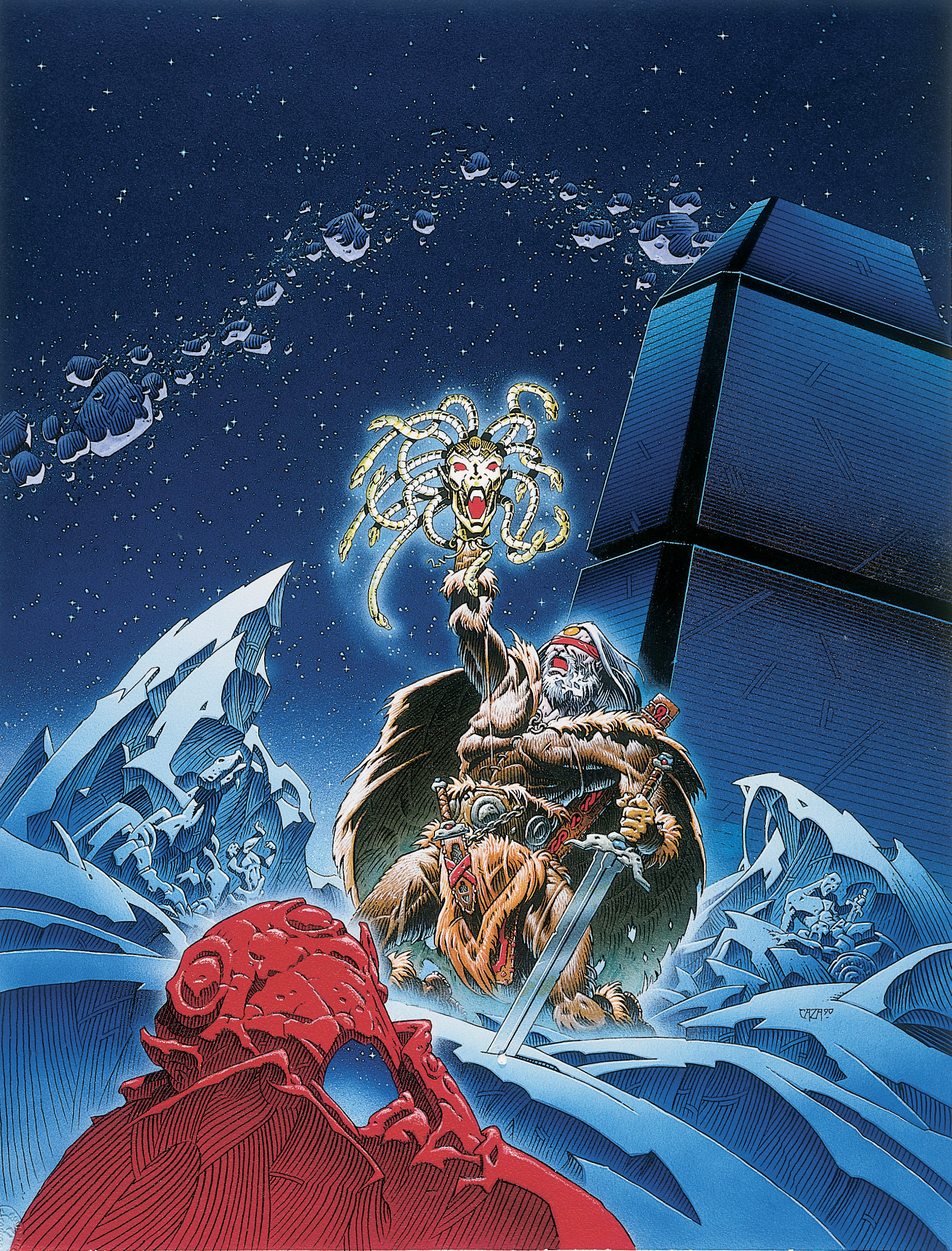
This project took quite a while to complete. 20 years, in fact. Why did it take so long?
Caza: Well, making comics is a lot of work, and I'm a bit slow! And then the series, which I had originally planned to run in five volumes, took on a scale I hadn't imagined. After the series remained at a standstill for quite a while, I spent time on the complete reworking of the first volume and created a prequel to it ("Nocturnes" in the French version, that will be the first chapter of the English edition) and managed to implement in the story the technological advancement of the time, such as computers now present everywhere. All in all, what should have taken probably 12 years to complete took 20.
Arkadi is also a publishing adventure! And in the end, I don't regret it: you only have to look at the evolution of my style over these 10 chapters. Like my characters, I've had my descents into hell... and my ascent into light.
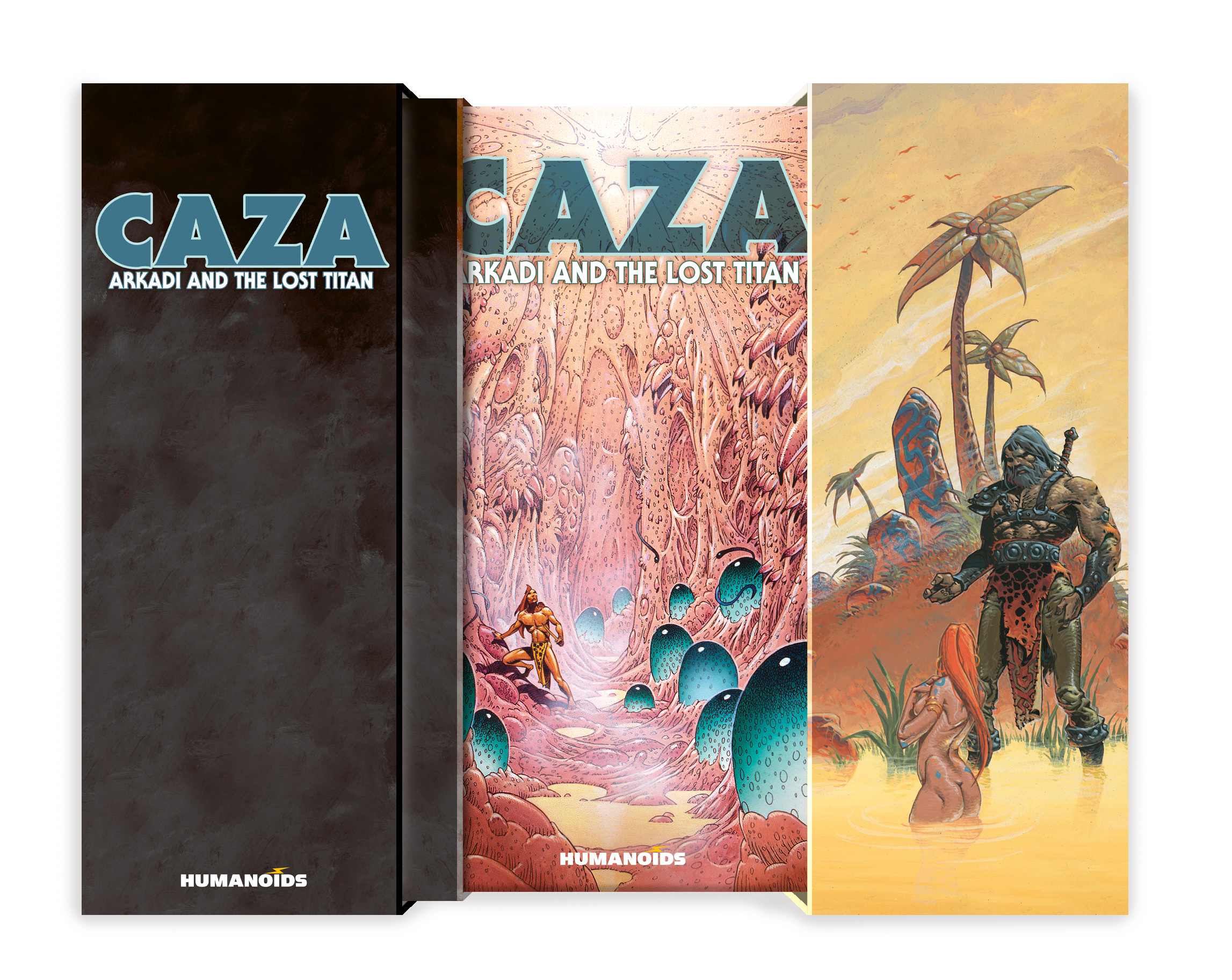
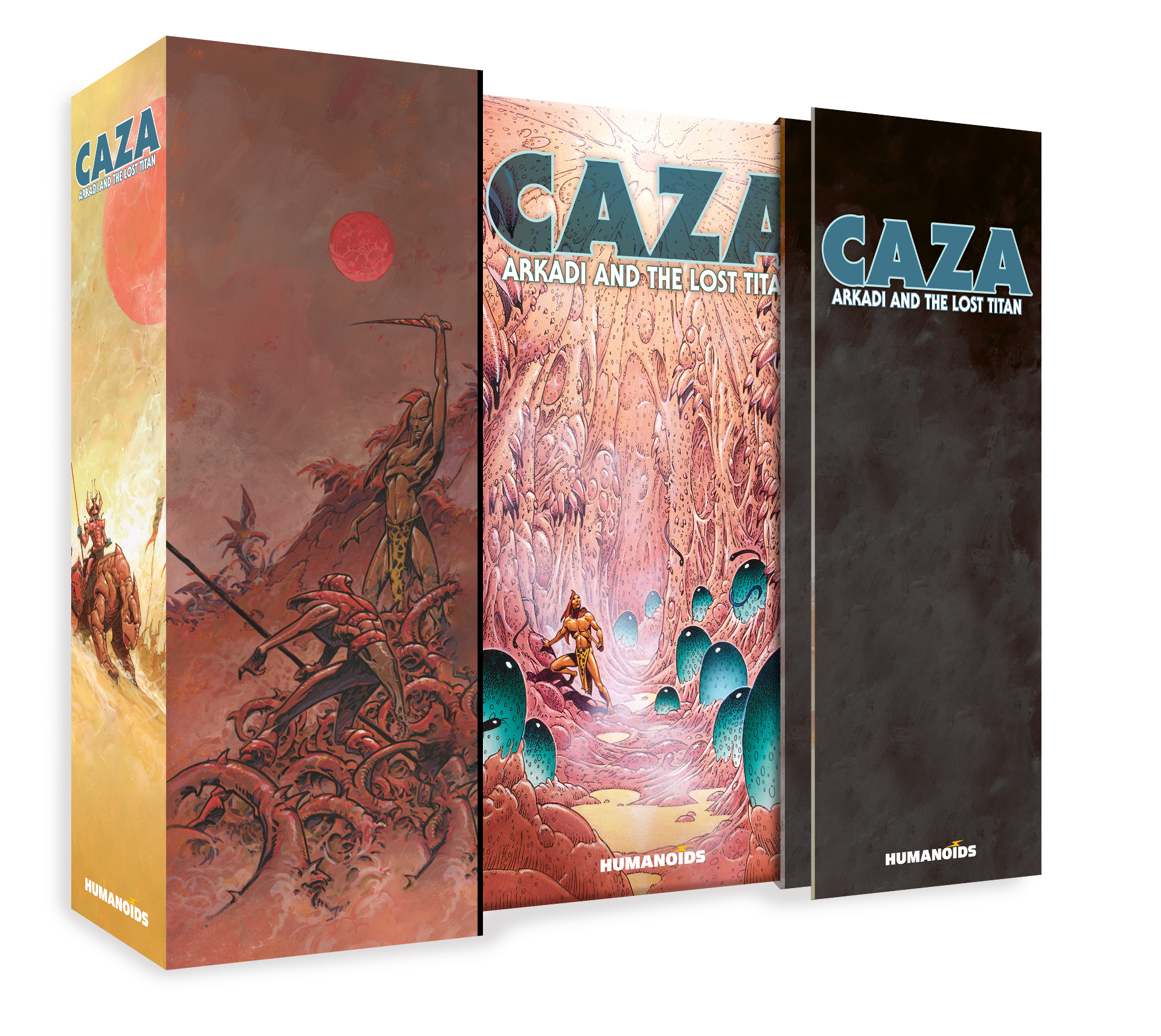
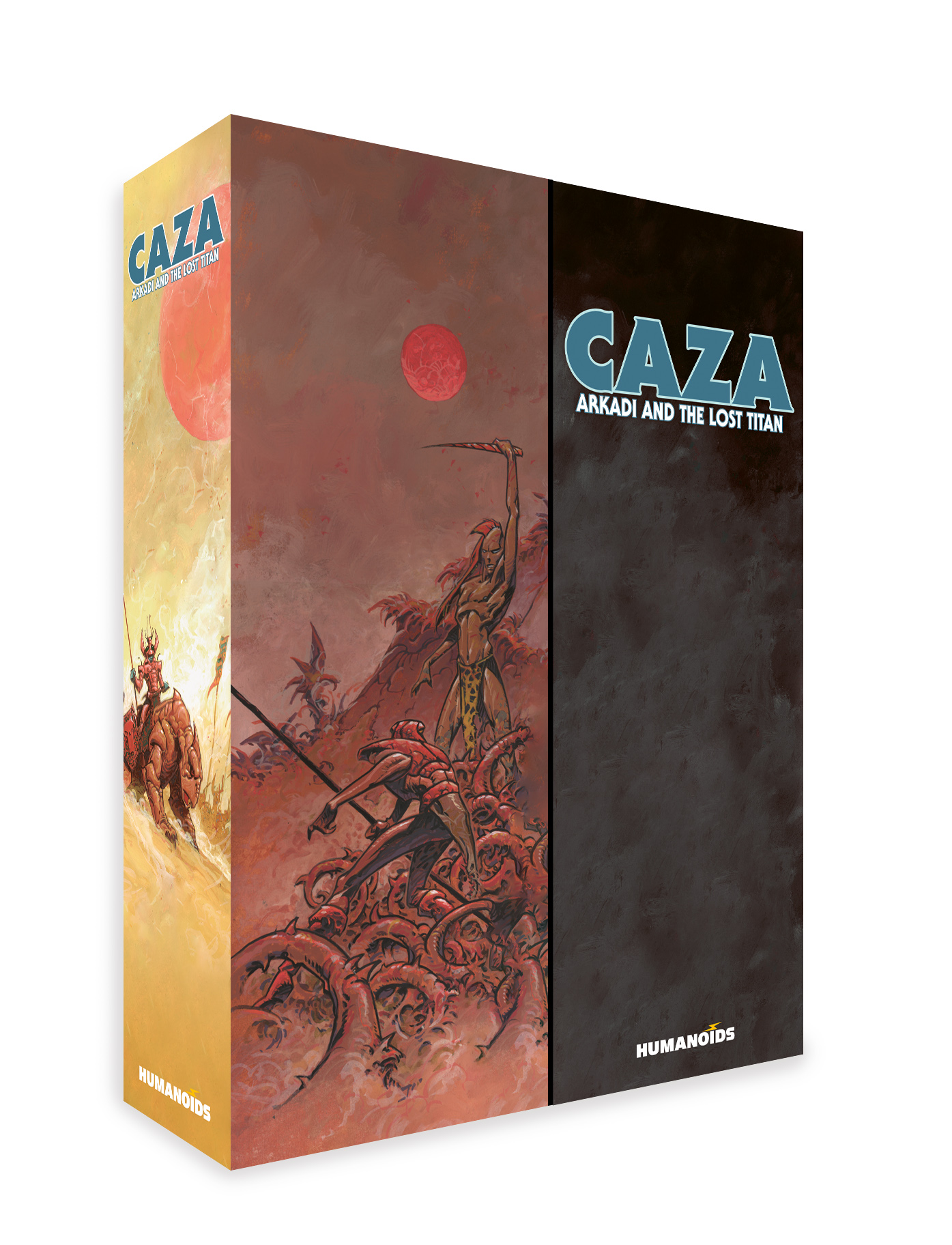
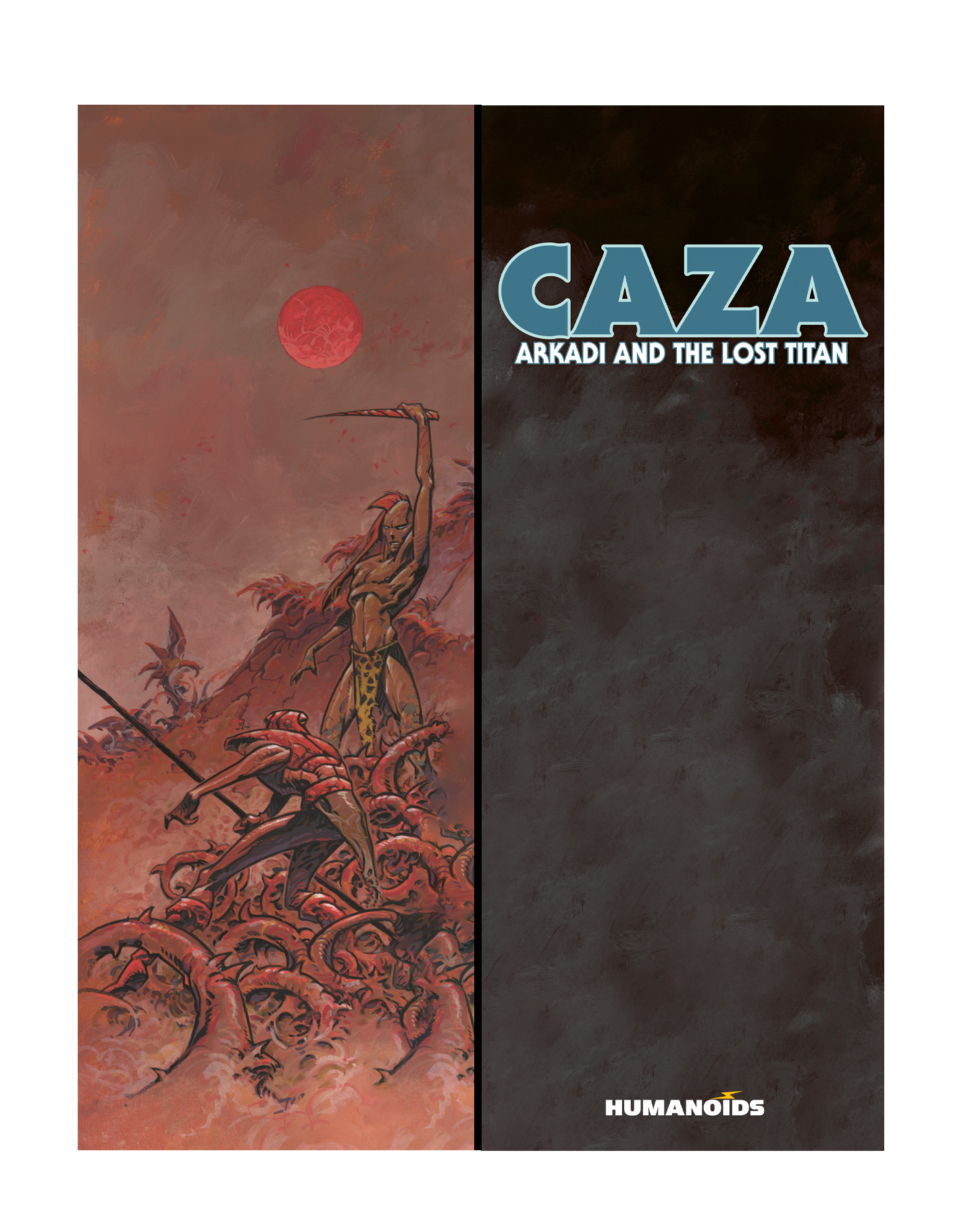
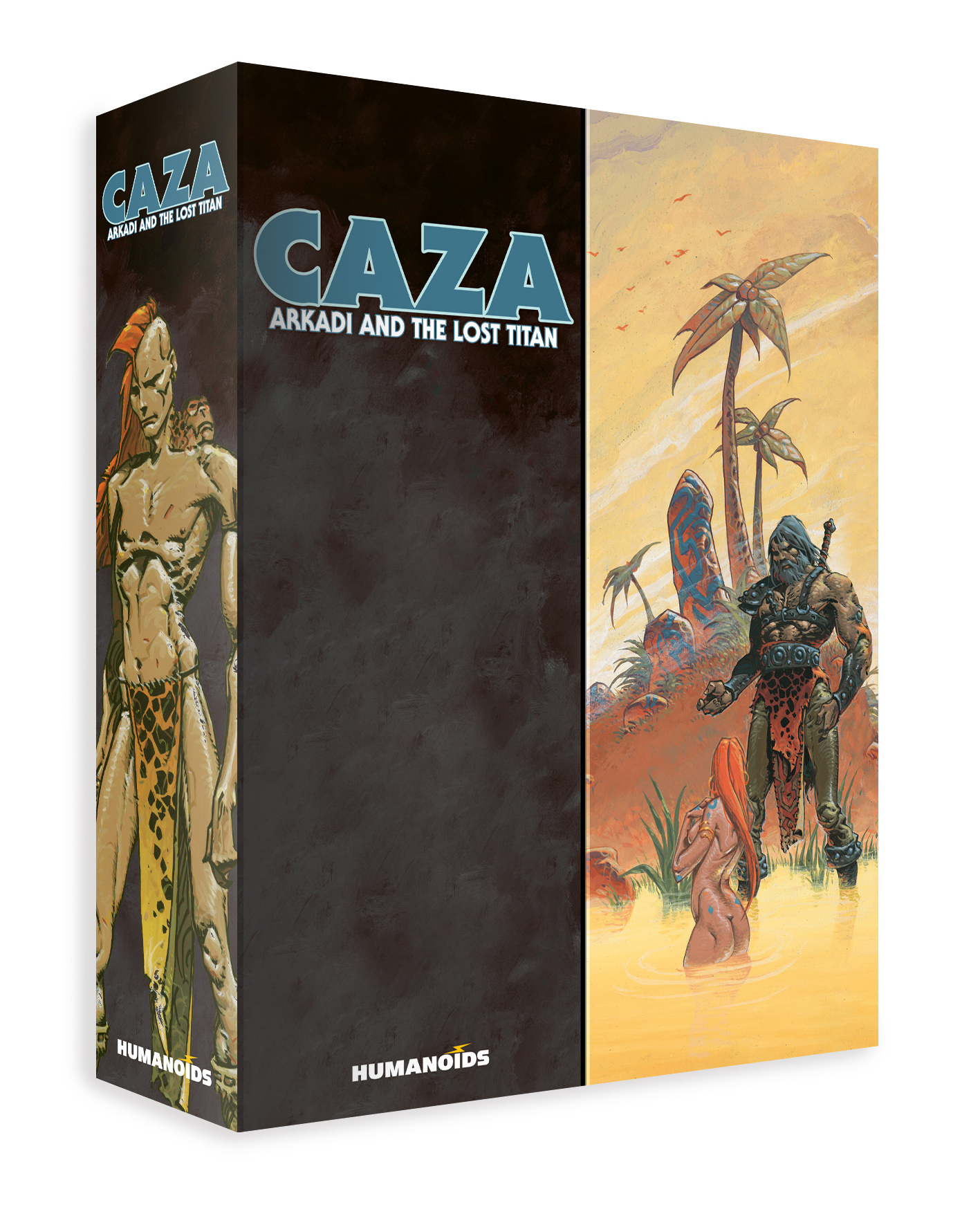
What has it been like returning to the material all these years later for the new edition?
Caza: A great deal of pleasure and a great deal of worry! Because I'm very attached to this saga, it's a bit "my life's work". So I'm delighted to finally see the whole story brought together in one big book, which will make for continuous reading and allow the storyline to reveal its full scope, coherence, and internal logic. So, I'm keeping a close eye on all the fine-tuning that needs to be done, in terms of format, color, and so on for this ultimate edition. I get involved as much as I can. It's a job and a pleasure. I'm modest by nature, but all in all, Arkadi and the Lost Titan… I'm proud of it.
How do you feel about the fact that Arkadi and the Lost Titan will soon be available to English-speaking readers for the first time?
Caza: That's the (big) icing on the cake! It's like I've been waiting for this forever. My graphic culture, comics and science-fiction illustrations owe a lot to American culture; my Titans, my machine-gods, are the link between classical mythology and the world of superheroes; my comic book idols are Frazetta, Kirby, Buscema. So this is my tribute, a way of giving back to them what they've given me. And when you're a fan of sci-fi, jazz, and westerns, how can you not say "Go west!”?
Arkadi and the Lost Titan is published by Humanoids and available in deluxe and standard editions via Kickstarter.
Looking for something new to read? Check out our picks of the 10 best manga to read right now.

Will Salmon is the Streaming Editor for GamesRadar+. He has been writing about film, TV, comics, and music for more than 15 years, which is quite a long time if you stop and think about it. At Future he launched the scary movie magazine Horrorville, relaunched Comic Heroes, and has written for every issue of SFX magazine for well over a decade. His music writing has appeared in The Quietus, MOJO, Electronic Sound, Clash, and loads of other places too.


